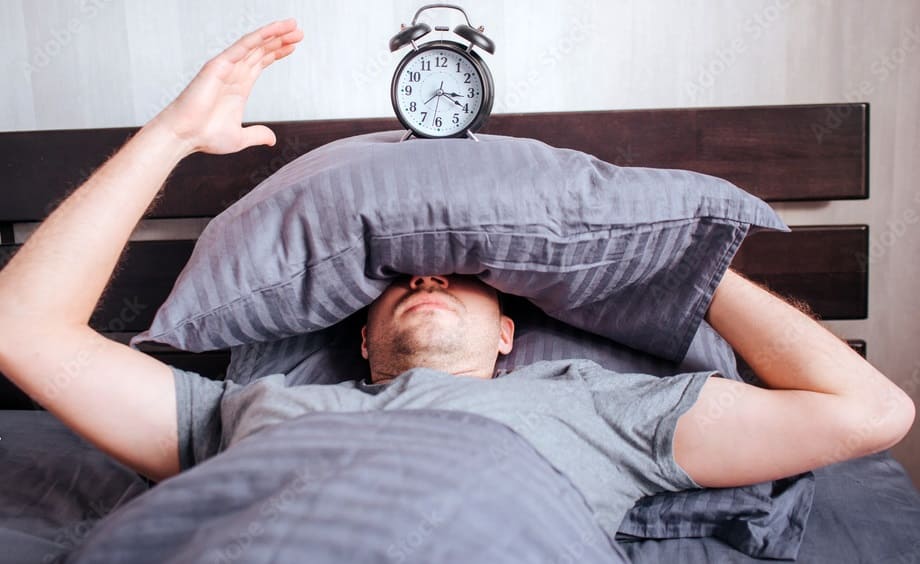We’ve all had those nights when we stay up late, whether it’s because of work, binge-watching a show, or scrolling endlessly on our phones. But did you know that consistently sleeping less than six hours a night can have serious consequences for your health? Experts warn that chronic sleep deprivation can lead to a range of physical and mental health issues. Let’s dive into what happens when you don’t get enough rest.
Serious Health Risks of Sleeping Less Than 6 Hours a Night
1. Increased Risk of Heart Disease
Sleep is essential for maintaining heart health. Experts at the American Heart Association state that less than six hours of sleep per night is linked to high blood pressure, inflammation, and a higher risk of heart attacks and strokes. During deep sleep, the body regulates stress hormones and repairs the cardiovascular system. When sleep is consistently cut short, it puts extra strain on the heart, leading to long-term damage.
2. Weakened Immune System
Your body repairs itself while you sleep. Without adequate rest, your immune system struggles to fight off infections, making you more susceptible to colds, flu, and even chronic illnesses. Research shows that people who sleep less than six hours a night are more likely to fall sick after being exposed to viruses. This is because sleep deprivation lowers the production of infection-fighting cells and antibodies.
3. Weight Gain and Obesity
Ever notice you crave junk food after a sleepless night? Experts explain that sleep deprivation affects hormones like ghrelin and leptin, which regulate hunger and fullness. When you don’t get enough rest, ghrelin (the hunger hormone) increases, making you crave high-calorie foods, while leptin (the satiety hormone) decreases, leading to overeating. Additionally, a lack of sleep affects metabolism, making it harder for the body to burn fat efficiently.
4. Increased Risk of Diabetes
Lack of sleep can affect insulin sensitivity, leading to higher blood sugar levels. According to the National Sleep Foundation, chronic sleep deprivation increases the risk of developing type 2 diabetes. This happens because sleep plays a crucial role in glucose metabolism. When the body doesn’t get enough rest, it struggles to regulate insulin levels, increasing the likelihood of insulin resistance and diabetes over time.
5. Cognitive Decline and Memory Problems
Your brain needs sleep to process information and store memories. Without enough rest, you may experience forgetfulness, difficulty concentrating, and slower problem-solving skills. Long-term sleep deprivation may even increase the risk of neurodegenerative diseases like Alzheimer’s. Experts say that during deep sleep, the brain clears out toxins, including beta-amyloid plaques, which are linked to Alzheimer’s disease. Without enough rest, these harmful substances build up, contributing to cognitive decline.
6. Mood Swings and Mental Health Issues
Experts warn that insufficient sleep can contribute to anxiety, depression, and irritability. Sleep deprivation affects neurotransmitters in the brain, making it harder to regulate emotions and stress levels. Studies show that people who sleep less than six hours a night are more prone to mood disorders, heightened emotional reactivity, and even suicidal thoughts. Over time, chronic lack of sleep can lead to severe mental health conditions that affect overall well-being.
7. Lowered Productivity and Performance
Whether at work or school, lack of sleep can reduce your ability to focus, make decisions, and complete tasks efficiently. This can lead to poor performance, mistakes, and even accidents. Sleep is essential for problem-solving, creativity, and decision-making. Experts explain that when you don’t sleep enough, your brain struggles to consolidate new information, making it harder to retain knowledge and think critically.
8. Higher Risk of Accidents
Sleep deprivation slows down reaction time and impairs judgment, increasing the risk of car accidents and workplace injuries. The National Highway Traffic Safety Administration (NHTSA) reports that drowsy driving is a major cause of fatal road crashes. Studies show that driving after staying awake for 24 hours is equivalent to having a blood alcohol concentration (BAC) of 0.10%, which is above the legal limit in many countries. Lack of sleep can be just as dangerous as drunk driving.
How to Improve Your Sleep?
If you’re getting less than six hours of sleep regularly, it’s time to prioritize rest. Experts recommend:
- Maintaining a consistent sleep schedule by going to bed and waking up at the same time every day.
- Reducing screen time before bed since blue light from screens disrupts melatonin production.
- Avoiding caffeine, nicotine, and heavy meals late at night, as they interfere with sleep quality.
- Creating a comfortable sleep environment with a dark, quiet, and cool room.
- Practicing relaxation techniques like meditation, reading, or deep breathing exercises to promote sleepiness.
- Exercising regularly, but not too close to bedtime, as physical activity helps regulate sleep patterns.
Getting enough sleep isn’t a luxury—it’s a necessity. If you find yourself struggling with sleep, consider speaking with a healthcare professional for personalized advice.
Also Read:
